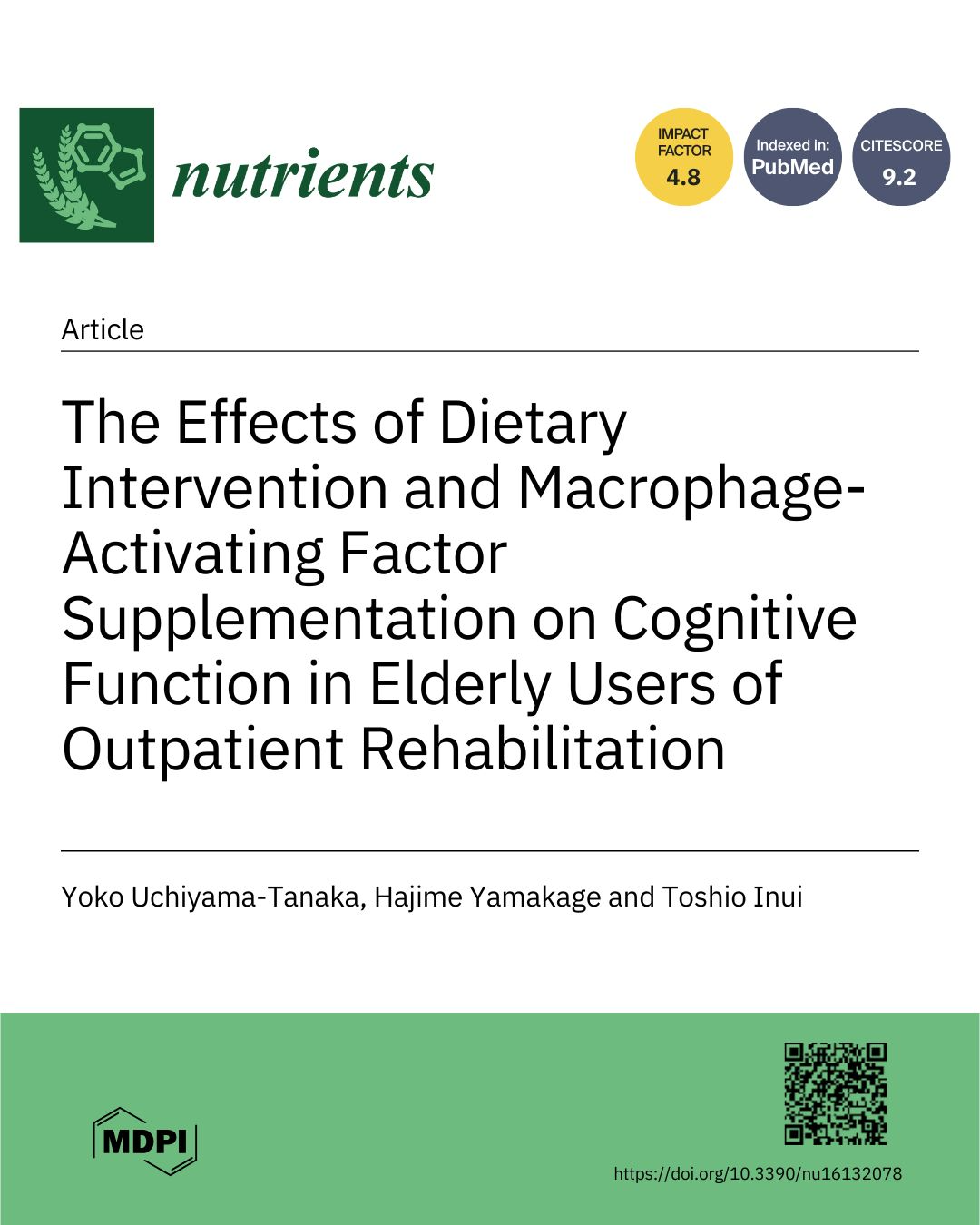Brain Health, Microglia, and the Power of MAF
The latest research underscores the importance of microglia, the Klotho gene, and telomere
health in maintaining brain function. Dietary MAF offers a novel, science-backed approach to
supporting cognitive health, reducing inflammation, and potentially extending lifespan.
Discover the power of MAF and take a proactive step toward brain health today!


Understanding Brain Regeneration
Our brain has a limited ability to regenerate, but it does have mechanisms to adapt and repair itself: Neurogenesis: The hippocampus, crucial for memory and learning, can generate new neurons. Neuroplasticity: The brain can rewire itself by strengthening existing connections. Stem Cells & Repair: Neural stem cells can differentiate into new neurons or glial cells. Limitations: Unlike skin or muscle, the brain’s ability to recover from damage is limited.
The Role of Microglia in Brain Health
Microglia are vital immune cells in the brain, once thought to merely support neurons but now recognized as specialized resident macrophages of the central nervous system (CNS). They play key roles in: Clearing harmful protein aggregates (like amyloid beta, associated with Alzheimer's and Parkinson’s). Repairing and protecting the blood-brain barrier to maintain brain function. Regulating neuroinflammation, which plays a role in cognitive decline and neurodegenerative diseases.


Why Healthy Microglia Matter
Dysfunctional microglia can contribute to chronic inflammation and
brain diseases. Recent research highlights a paradigm shift in dementia
treatment, focusing on:
1. Supporting healthy microglia to reduce inflammation.
2. Klotho gene overexpression—a longevity factor that enhances
cognitive function.
3. Telomere extension, linked to rejuvenation and longevity
The Role of α-Klotho in Brain Health and Aging
What is α-Klotho?
α-Klotho is a vital anti-aging hormone found in the kidneys, brain, bloodstream, urine, and
muscles. It plays a crucial role in promoting longevity and overall health. However, its levels
naturally decline after the age of 40, increasing the risk of cognitive decline, Alzheimer’s
disease, and other neurodegenerative disorders.
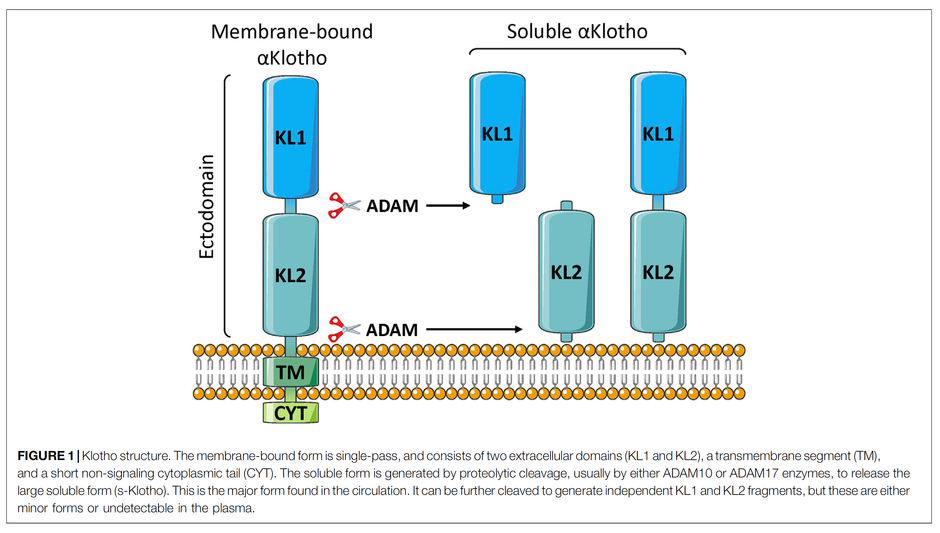
Actions of α-Klotho – effects on aging
Klotho is an anti-aging hormone detected in the kidneys, brain, urine,
blood stream, and muscle.
It is essential for a long, healthy life.
The plasma (soluble) form of α-klotho is most easily measured, and has been shown to decrease after 40 years of age in humans.
Klotho: The Anti-Aging Gene
Named after the Greek goddess Clotho, this gene plays a crucial role in
aging and cognitive function. Studies show:
Klotho deficiency shortens lifespan by 80%.
Overexpression in mice extends lifespan by 30%.
Higher Klotho levels correlate with better cognitive function and
neuroprotection.
Plasma Klotho levels decline with age, increasing the risk of
cognitive decline.
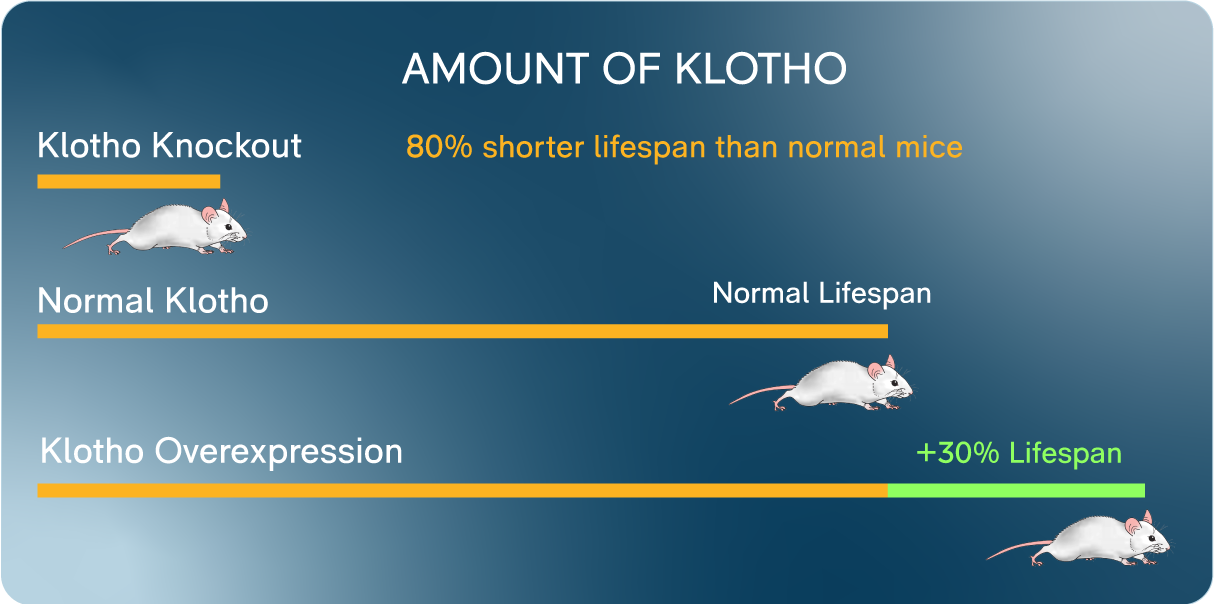
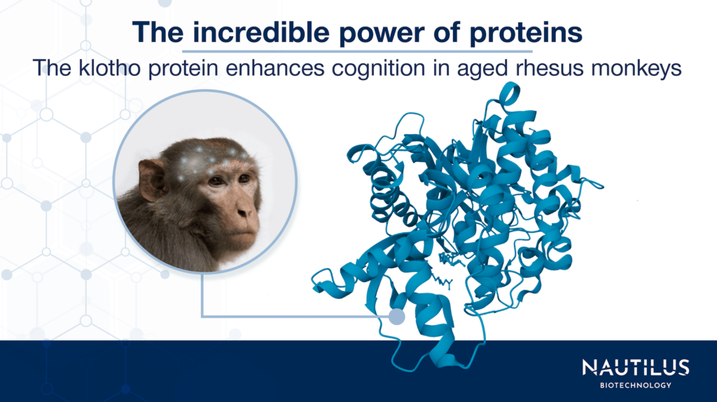
How Does α-Klotho Impact Brain Health?
Cognitive Function: Higher levels of α-Klotho have been
linked to improved memory and synaptic plasticity in both
aged mice and nonhuman primates.
Aging and Neurodegeneration: As α-Klotho levels decrease
with age, the risk of cognitive decline and neurological
diseases rises.
Potential Therapeutic Target: Increasing α-Klotho levels may
offer new avenues for preventing age-related cognitive
decline and extending lifespan.
How MAF Supports Brain Health
Macrophage-Activating Factor (MAF) is a powerful regulator that has
shown promising results in brain health:
Boosts Klotho levels in the plasma, brain, and kidneys.
Supports microglia in clearing toxic proteins.
Enhances neuroprotection and cognitive function.
Reduces neuroinflammation linked to aging and neurodegeneration.


The Connection Between MAF and α-Klotho
Research suggests that Dietary MAF (Macrophage Activating Factor) can
naturally boost α-Klotho levels in the body:
Increased α-Klotho Levels: Studies show that MAF supplementation
raises α-Klotho levels in the plasma, brain, and kidneys.
MAF & α-Klotho: Mice consuming MAF showed significant increases
in α-Klotho, indicating a potential nutritional strategy to support brain
health and longevity.
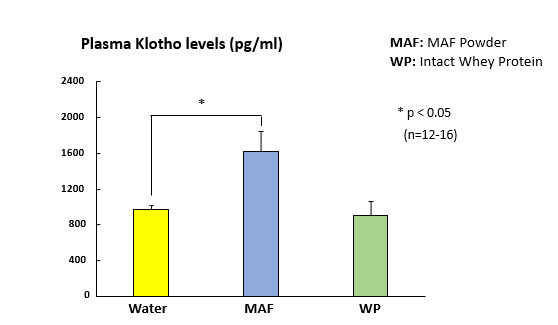
Effects of MAF on plasma α-Klotho levels in mice
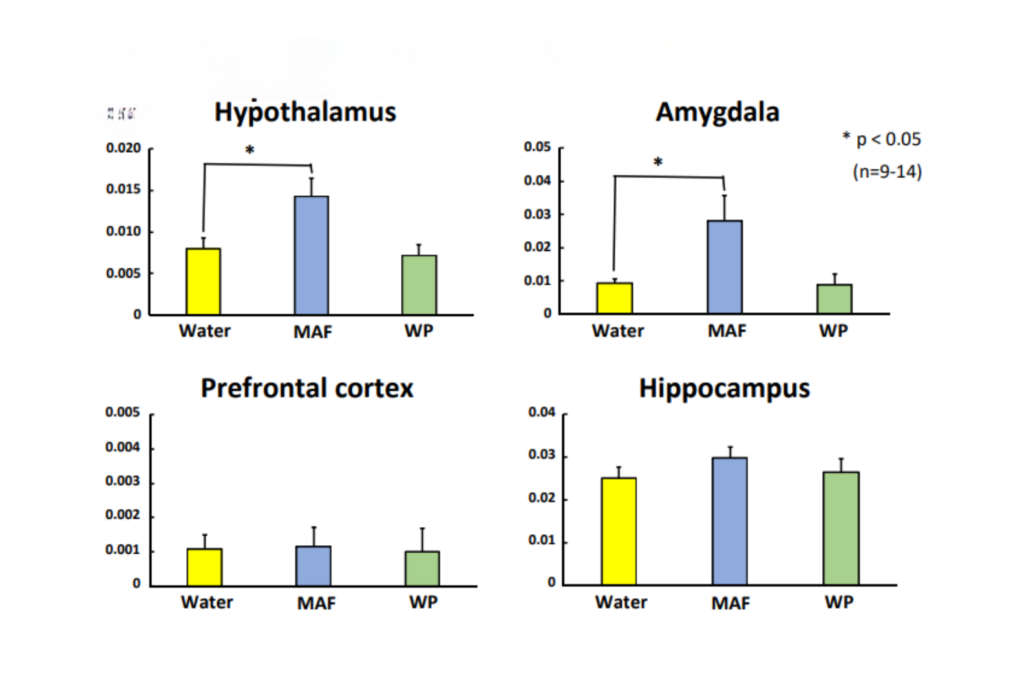
Effects of MAF on brain α-Klotho contents (pg/mg protein) in mice
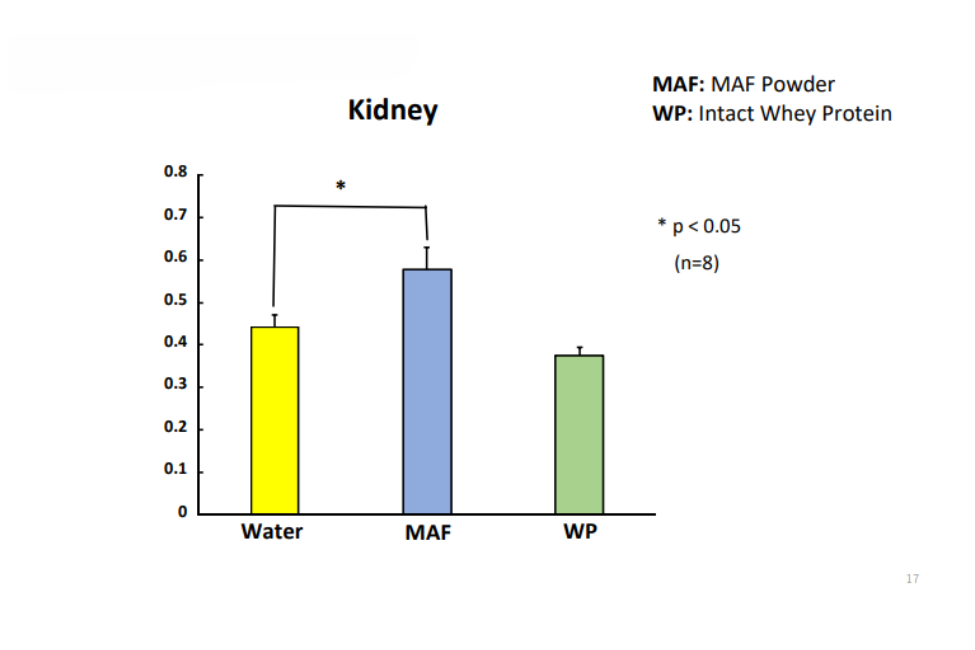
Effects of MAF on kidney α-Klotho contents (pg/mg protein) in mice
Why is This Important?
With 50% of mammals experiencing cognitive decline as they age, maintaining
healthy α-Klotho levels could be a key factor in promoting brain health, cognitive
function, and longevity. By leveraging the power of MAF and α-Klotho, we may be
able to support healthy aging and reduce the risk of age-related diseases.

Clinical Findings on MAF
A Phase 2 clinical trial in Japan studied the effects of dietary MAF on
elderly individuals in rehabilitation. Results showed:
Improved cognitive function in participants using MAF.
Many participants in the MAF group did not contract COVID-19
during the study.
Potential for MAF to support immune function and cognitive health.
Clinical trial: Phase 2, to evaluate the efficacy of Dietary MAF on Cognitive Function in Elderly Users of Rehabilitation in Japan
Background: Age, genetic, and environmental factors are
noted to contribute to dementia risk. Neuroplasticity,
protection from degeneration and cell death, and early
intervention are desirable for preventing dementia. The
linkage between neurons and microglia has been a research
focus. In this study, we examined the effects of dietary
modification (a reduction in advanced glycation end
products [AGEs]) and macrophage-activating factor (MAF; a
macrophage regulator) supplementation on cognitive
function in elderly participants undergoing rehabilitation.
Methods: Participants were older than 60 years of age and
had been attending a daycare rehabilitation facility for at
least three months without cognitive dysfunction, severe
anemia, terminal cancer, or neurodegenerative diseases
such as Parkinson’s disease.

